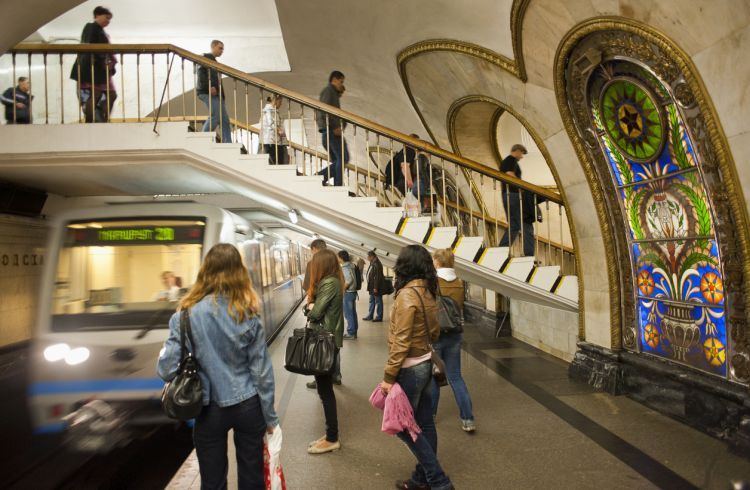Transport & Borders in Russia: Getting Around Safely
Russia has lots of options for public transport. Here are a few tips on how to get around safely, and what you need to know about border crossings.
 Photo © iStock/U.Ozel.Images
Photo © iStock/U.Ozel.Images
Russia is, without question one of the most unforgettable travel destinations, providing visitors with incredible experiences and memories to last a lifetime. By knowing what to expect and what to avoid ahead of time, you can ensure a safe and memorable Russian adventure.
Public transport in Russia
Given Russia's enormous size, there are many options for tourists to get around. Public transportation is quite common, with buses and taxis easily accessible for short distances such as trips between major cities, and trains available for those making longer treks. When using public transportation in Russia, however, there are certain precautions that should be taken.
Taxis
There are many unofficial taxis and minibuses cruising the streets in seek of passengers. These can prove dangerous, particularly with foreigners, who often find themselves the victims of robbery. Victims are often abandoned after the crime, and trust us, if you're visiting Russia in winter, you don't want to be stranded somewhere facing brutal cold conditions. If you plan to use a taxi, it's recommended you use only municipal taxis, and whenever possible hire taxis from your hotel or out in front of your hotel. It may cost a bit more, but it's safer. Additionally, to avoid the risk of being mugged travelers should not share taxis with strangers.
Trains
Train travel in Russia is quite popular and provides an excellent, efficient way to get from here to there quickly. Keep in mind, however, that as a foreigner you may appear to be an easy target for other passengers. When traveling by train, be extremely cautious about eating and drinking with strangers, and always remain sober. If you are traveling in a train that contains sleep compartments, always lock your compartment door when you are inside, and never leave your valuables visible when leaving to go to the bathroom or restaurant car. Whenever possible, have one of your travel companions remain with your belongings to avoid being a victim of theft. Travelers are strongly cautioned never to invite strangers to join them in their sleep compartments. No matter how attractive he or she may be.
Another thing to note when traveling by train is that passengers are not permitted to carry any alcohol onboard. Although you may see locals doing so, the consequence of getting caught often means being evicted from the train, which just may be a tiny station in the middle of nowhere. Unless you're familiar with the area, it's definitely not worth the risk.
Pedestrian safety in Russia
As a tourist, there are inevitably going to be times when you're going to be walking around, taking in the sites and enjoying the culture on foot. Although the major cities in Russia, like Moscow and St Petersburg, tend to be safer for visiting tourists, as with any large city there are still areas that are considered unsavory and should be avoided. This is particularly true at night when muggings and crime are more likely to occur. There are plenty of exciting nightlife spots to experience in Russia; but avoid walking around alone, instead grab a taxi.
Another important tip to take note of is that in Russia pedestrians do not have the right of way. Russia is not known for its cautious drivers. As such, you should always be aware of your surroundings, and remain alert. It's not uncommon for aggressive drivers to swerve their vehicles to avoid other traffic.
Risky regions
There have been plenty recent travel safety advisories warning travelers to avoid certain areas in Russia, due to the ongoing threat of terrorist activities, such as bombings and hostage takings.
Crimea
The governments of Australia the US, UK and Ukraine do not recognize Russia's annexation of the Ukrainian region of Crimea and have issued a do not travel advisory due to the high security risk. Some tour operators in Russia will offer packages that go there but it is best to avoid taking those tours.
The Ukraine Government will not allow entry to foreign nationals who enter the Ukraine from Crimea if they have entered Crimea from any other country including Russia.
There is no border check to go from Russia to Crimea but you will need special permission from the Ukrainian Government to go from the Ukraine to Crimea and back. However given the high security risk and ongoing tensions it is best to avoid the area.
North Caucasus
The North Caucasus region should be avoided, including the areas of Chechnya, Ingushetia and Dagestan as well as Levokumsky, Neftekumsky, Budyonnovsky, Stepnovsky and Kurskoy.
Additionally, travelers are advised to stay away from North Ossetia and Karachai-Cherkessia unless absolutely necessary. Although there is no indication that tourists and foreigners are specifically being targeted, the risk remains particularly high in these areas since terrorists have been known to target large buildings, hotels, market areas and means of public transportation, all of which are areas frequented by travelers. The risk here is very real, and should be taken seriously.
Occasionally the troubles in the North Caucusus come to visit Russian cities. Two Moscow metro stations were bombed in 2010 and the main airport was the scene of a suicide bombing in January 2011. Both attacks claimed 30 to 40 lives each, and were attributed to Cechyan rebels. The Cechnya "war" continues with the likelihood of more attacks.
Another particularly alarming threat is that of kidnapping. In certain areas, specifically the North Caucasus region, there have been numerous reports of local criminal gangs kidnapping foreigners for ransom.
Because of this, travelers to this region, and any part of Russia should remain aware of their surroundings at all times and practice good safety precautions.
Related articles
Simple and flexible travel insurance
You can buy at home or while traveling, and claim online from anywhere in the world. With 150+ adventure activities covered and 24/7 emergency assistance.
Get a quote
No Comments